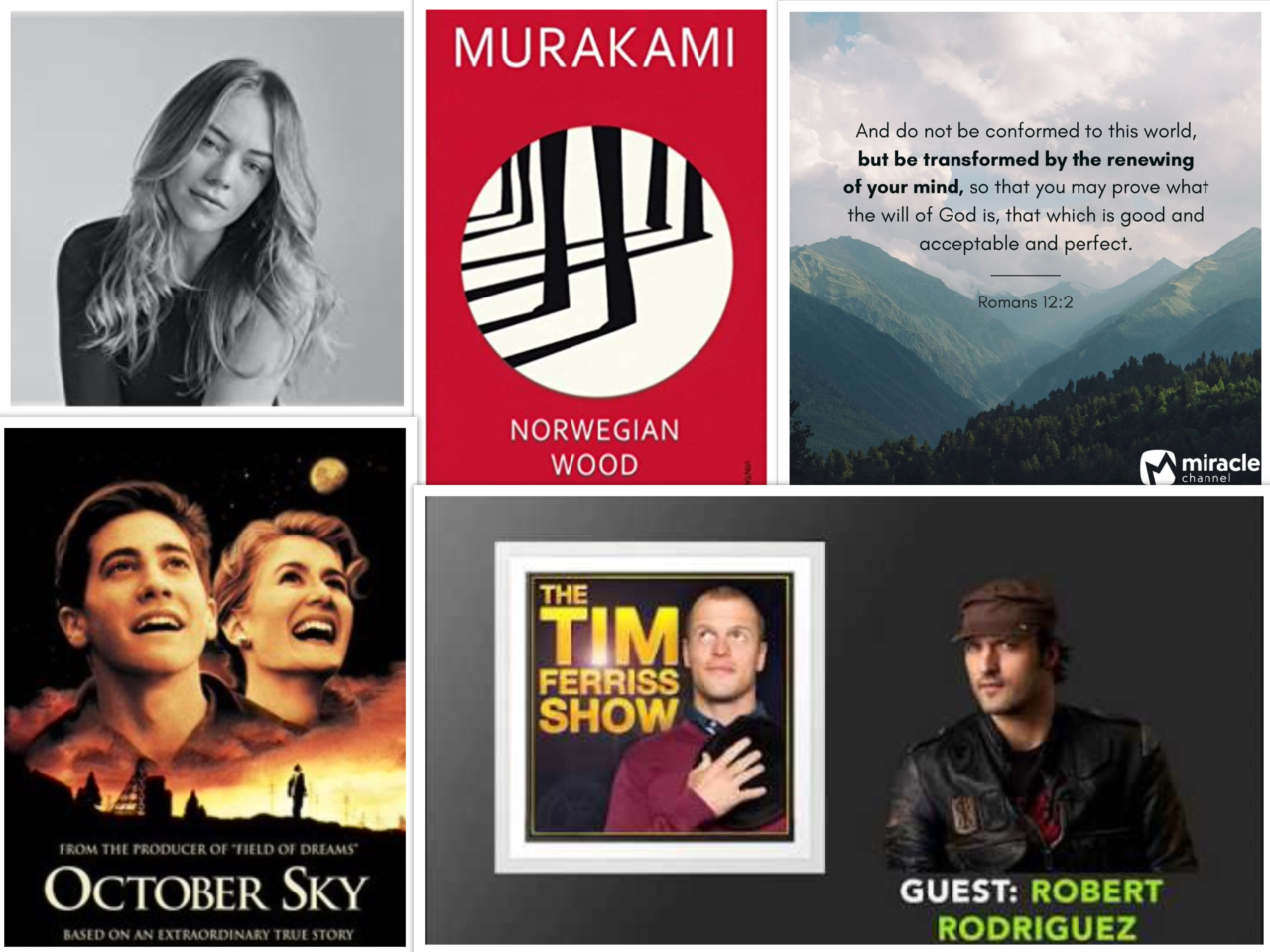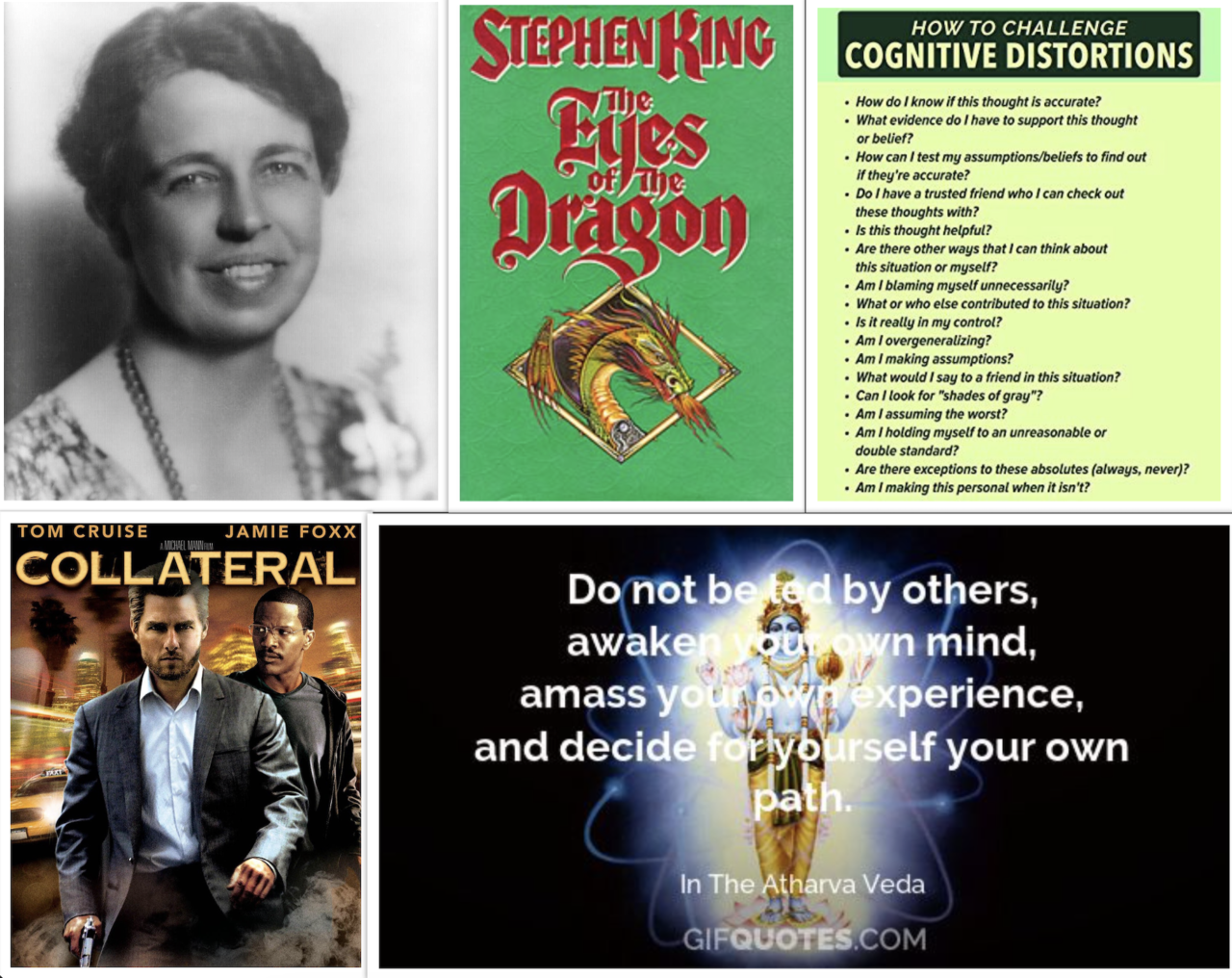Sunday Supplement #19 (September 19th, 2021)
Below is another Sunday Supplement with a quote worth sharing, a book worth reading, a movie worth watching, brainfood worth consuming, and a spiritual passage worth pondering.
I hope you take something away from these recommendations that enriches your week ahead!
Quote of the Week:
“Honesty is the fastest way to prevent a mistake from turning into failure.”
– James Altucher
Book of the Week:
Cujo – Stephen King
My first post about Stephen King was in Sunday Supplement #4 and featured his fantasy novel The Eyes of the Dragon. I wrote about that novel because it disproves the notion that King is just a horror novelist.
Cujo does have some horror elements in it, but it is much more than a scary story. In my opinion, King’s greatest talent as a writer is his ability to construct characters that have depth and make the reader care about what they go through. Even though King barely remembers writing the novel, it is still one of his best.
I’ve read over 40 Stephen King novels, but I stayed away from Cujo for a long time because I thought it was just a horror book. I’m grateful I gave it a chance because it is one of my favorite books he’s written so far.
The story follows two families amid financial and personal struggles. Vic Trenton and his wife, Donna, are going through their own issues, while a family across town, the Chambers, deal with the abuse in theirs. Cujo, the Chambers’s Saint Bernard, has his own narrative that is struck by contracting rabies. The two families are brought together as the Cujo begins to lose control and attack.
I haven’t watched the movie, and I don’t intend to watch it because most of the adaptations of King’s novels fail to capture the magic he puts on the page. This novel has plenty of depth and will be one that hits you far differently than blurbs suggest if you give it a chance.
Movie of the Week:
This British comedy is one of my favorite movies to put on when I’m feeling down. It is about six unemployed steelworkers in Sheffield, England, who decide to make ends meet by becoming strippers. Each character has their arc, and all have lessons to learn about themselves.
The Full Monty stars some of today’s highly accomplished actors. Mark Addy (Game of Thrones) and Tom Wilkinson (Michael Clayton, Batman Begins, and The Patriot) show early glimpses of their talent and bare it all—pun intended. Robert Carlyle (Trainspotting, The World is Not Enough) stars in the lead role of Gaz and provides great depth as a father struggling to be a positive presence in his son’s life.
The movie was penned by Simon Beaufoy (Slumdog Millionaire, 127 Hours), but it apparently took a lot of editing to make it the Oscar-nominated film it ended up being. In an interview on The Graham Norton Show, Carlyle revealed that the movie was set to be released straight to video until a lot of convincing got it a theatrical release. The result was a gross of over $250 million from a $3.5 million budget.
The Fully Monty has a lot of heart and has some poignant lessons about honesty, responsibility, having fun, and friendship. It’s a great watch and one that provides a lot of laughs.
Brainfood of the Week:
‘Sup Beautiful People – A mini-documentary of Ozro Hepworth by Logan Whorton
Ozro Hepworth grew up in the small town of Panguitch, Utah. He was a state champion in wrestling before he graduated high school and went to work in a factory. While working there, he saw an advertisement for a masseuse school and began taking classes after his overnight shifts. A year later, he became a massage therapist on cruise ships and traveled the world.
Hepworth ended up in Los Angeles and became a yoga teacher before he moved into education. Visual impairment came into his life, along with many other challenges, and he chose positivity as his way of moving forward.
This mini-documentary is a profound glimpse into the life of a man who faced many adversities and chose to move forward. In the video, you can see bits of his journey and how he cultivated a practice of positivity to help himself and ultimately help others. It is a nine-minute mini-documentary and is worth the watch. I learned from the video how you can take any situation and choose to do something about it.
Let me know what you picked up!
Closing Spiritual Passage:
“Knowledge is a garden. If it isn’t cultivated, you can’t harvest it.”
– African Proverb
This African Proverb is a reminder for me to continue to learn and grow. Knowledge is something that must be maintained. Whenever I think I’ve reached a point where I feel confident and stable with my knowledge, the universe gives me another challenge. I’ve learned to embrace these opportunities to grow.
I haven’t always seen the lessons in the past. I’ve done a lot of research and have talked with a lot of people about how to learn and move forward. Opening the door to inward reflection helped me understand myself and improve. I realized that knowledge isn’t something that is always focused on the outside. Knowledge of myself has been one of the most helpful exercises I’ve incorporated in my life.
I’m reminded to look for new experiences and opportunities to learn something new about myself, others, or the world. I find that some of my fondest memories come from areas of growth. I encourage everyone to look for those experiences.
Learn something new about yourself or others, and have a blessed week ahead!
Comments closed



